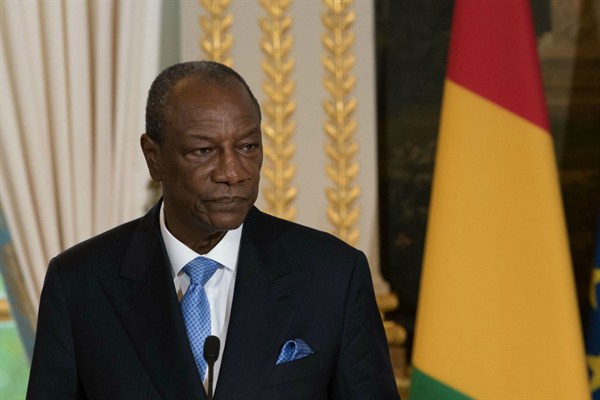Late last month, officials in the West African nation of Guinea announced that policing in the capital, Conakry, would be undergoing some changes. Specifically, they said soldiers would be deployed alongside police officers and gendarmes as part of new mixed patrols. The inauguration of these patrols, they said, was a necessary response to weeks of violent, sometimes fatal protests over issues ranging from low teacher pay to suspected election fraud.
News of the patrols sparked a forceful outcry from opposition politicians and human rights activists, who denounced their creation as a legally baseless maneuver intended to quell dissent primarily in neighborhoods sympathetic to the opposition. But Guinean authorities have refused to back down, insisting the government has the authority to organize the patrols to manage “exceptional situations.” “The law is very clear on this,” Elhadj Cellou Camara, a spokesman for the armed forces, told Radio France Internationale. “So it is totally wrong to say that it is not written that the army can participate in mixed patrols to secure an area where there is rampant insecurity.”
Legal or not, the mere fact of the patrols’ existence—they have already begun making the rounds—amounts to a tacit admission that the government of President Alpha Conde is again straining to impose order and keep Conakry’s streets violence-free. This strain is also apparent in the steadily rising casualty count. About a month ago, after two men were killed in a crackdown on a banned demonstration on the outskirts of the city, opposition leader Cellou Dalein Diallo announced that 100 demonstrators had died at the hands of the security forces since Conde took office in 2010. Amnesty International has a similar tally, and says that more than 20 people, including three members of the security forces, have been killed this year alone.

